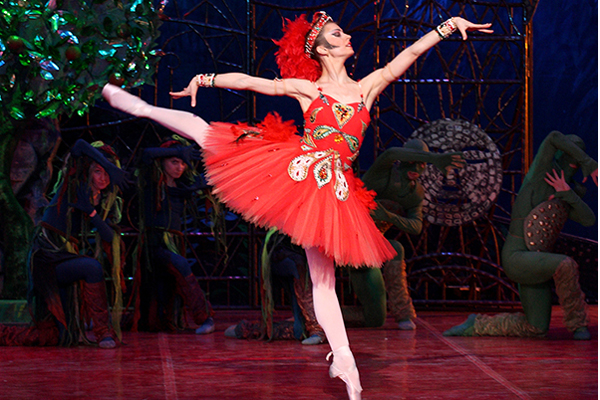
BRINGING together dancers from the Kremlin Ballet theatre company, plus guest artists from the Mariinsky and Bolshoi, Andris Liepa’s dream project – subtitled Les Saisons Russes du XXI Siècle – delivers an unprecedented number of ballets created by Serge Diaghilev’s Ballets Russes between 1909 and 1929. Regarded as the Golden Age of the company this is a hot ticket for fans of Diaghilev’s gang.
Programme 1 delivers one lost curio and one eternal classic, both by Michel Fokine.
Pieced together from fragments, designs, letters and educated guesswork, The Blue God is one of Fokine’s more extreme experiments in exoticism. Based on a libretto by Cocteau with a score by Alexander Scriabin replacing the original by Reinaldo Hahn, this has been reimagined by ENB’s artistic director Wayne Eagling. While it is dominated by extraordinary colourful visuals, largely based on Leon Bakst’s original designs, it is a fairly wobbly edifice involving Indian slave girls, monstrous priests and a pair of gods in blue.
Seemingly overwhelmed by the set and costumes, Eagling has not quite found his way through the thicket of Indo/Russian imagery though Natalia Balakhnicheva as the Young Girl has a darting, quicksilver style that is tremendously attractive.
The Firebird is first rate. A stunning recreation of the 1910 original it romps across the stage with gusto and infectious energy.
Alexandra Timofeyeva makes a strong rebird and Fokine’s management of his ensembles is wonderfully represented, combining demonic mayhem with angelic formations of the whiteclad princesses. Igor Pivorovich’s herky-jerky performance as the demon priest Kaschei The Immortal is a thing of skullfreezing horror.
An intriguing and curious evening, this project is an admirable achievement though it is clear that some “lost” works have been mislaid for a very good reason.
Neil Norman

